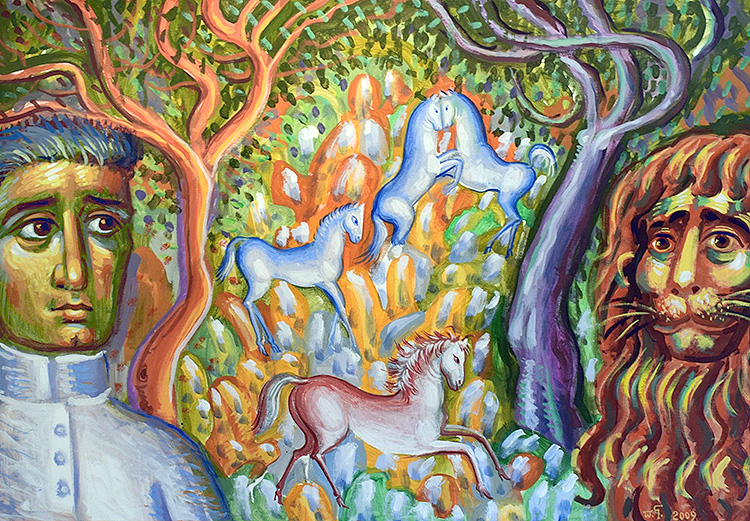by Davor Džalto
The Wheel Journal
On February 2nd, on the Feast of the Meeting, John Zizioulas, one of the most eminent contemporary Orthodox theologians and clergymen, fell asleep in the Lord. He inspired a couple of generations of Orthodox scholars, priests, and lay people, to approach the faith and the Church in a fresh, creative way.
Some two decades ago, at a conference in Serbia, I heard Zizioulas for the first time. Although I had already been familiar with his theology, I remember the impact that his talk made on me and many of my friends and colleagues at that time. The message we got from his talk was the message about freedom, freedom from the pregiveness of the world and our own being. It was a message about the true being, which is formed in communion, out of love.
What made this message particularly strong was the realization that this had something to do with who we are – in the concreteness of our particular “flesh and blood” existence. It was not something purely abstract. This theology required – to paraphrase Nikolai Berdyaev – an existential experiment. Life is at stake in this theology, and theology is at stake in life. It was a message that theology, if it wants to remain serious and truthful to itself, cannot be separated from life, from our experience, and, ultimately, from the liturgy, which gives birth to theology and serves as a testing place of theology. To such an understanding of what the theological/Christian task is all about, also contributed another theologian who was at the conference – Atanasije Jevtić. He was able to “translate” often complex theological concepts into the language of experience, into the language of immediate inter-human encounters.
This is something that resonated quite strongly with me for another reason as well. I was able to link this approach to theology with the thought of my “spiritual father,” Nikolai Berdyaev, and his personalism. These two thinkers remained formative in my own theological development. Even many years later, after studying both of them more thoroughly, I still think that their approaches, although different, are complementary in many ways.
Atanasije Jevtić and Ignatije Midić are to be credited for the spread of Zizioulas’s theology in Serbia. Midić, in particular, inaugurated Zizioulas as the “gold standard” of Orthodox theology, at a time when Zizioulas’s ideas were not very popular in many local Orthodox settings. As a rule, it is much less about what one intends to do, what one says or does, and much more about how what is intended, said, or done, is received in a particular context. The reception of Zizioulas’s theology was somewhat paradoxical.
On the one hand, it was received as a message of emancipation. It was often understood along the lines of “all you need is love.” This (neo-hippie) understanding of Zizioulas’s theology of personhood implied that our true (personal) “self” is being born in a (liturgical) community, so we are born out of freedom and love, which transcends our biological (individual) being, our socio-political (e.g. class and other) bonds.
On the other hand, however, because of his work on the role of the bishop at the Eucharistic gathering, and the iconic dimension of the liturgy/church, his theology also inspired a (neo)conservative approach. Many understood Zizioulas’s theology as an affirmation of a strict hierarchical organization of the church, where the bishop is the “boss” with virtually unlimited authority, both during the liturgy and outside of a liturgical context.
As usually happens with great thinkers, many less talented interpreters often stylize the thought of those they seek to affirm. Zizioulas’s thought has been reduced to empty phrases so that many of those who are not familiar with Zizioulas’s theology have developed animosity towards it before they even read or heard anything he wrote or said. But this is hardly Zizioulas’s fault. Marx cannot be responsible for the kind of Marxism his third-rate and (scholarly) half-literate epigones produced in the twentieth century.
Zizioulas was often misunderstood and attacked by various fundamentalists since his theology contradicted ethnically and nationally centered theological/ideological narratives. It also challenged the idea that the Church is something primarily about the rules, morality, abstract dogmas, or institutional procedures. Zizioulas was able to develop many earlier ideas coming from different contexts, shaping them in a new, creative, and useful way (which was also the source of the objection – that he was “improving” the Fathers). Owing very much to earlier (primarily Russian) thinkers, he developed an “ecclesiology of communion,” where the identity of the Church stems from the liturgy, and where the (universal) council unites the “many” (local churches). Later, however, it seems that he started strengthening the primacy of a “first” (the Greek Patriarch of Istanbul) at the expense of some of his own earlier theological postulates.
His contributions to theology and the ecumenical dialogue are enormous, despite the fact that many of his ideas remained un- or underdeveloped. It is the task of contemporary and future theologians to work with them, since Zizioulas’s theology, in my view, has a lot to offer. A critical examination is always fruitful, especially when it is done constructively, with the intention to improve things. Zizioulas deserved gratitude for his work. The most important of his studies will, inshallah, remain landmarks in modern/contemporary Orthodox theology.
Memory eternal!


